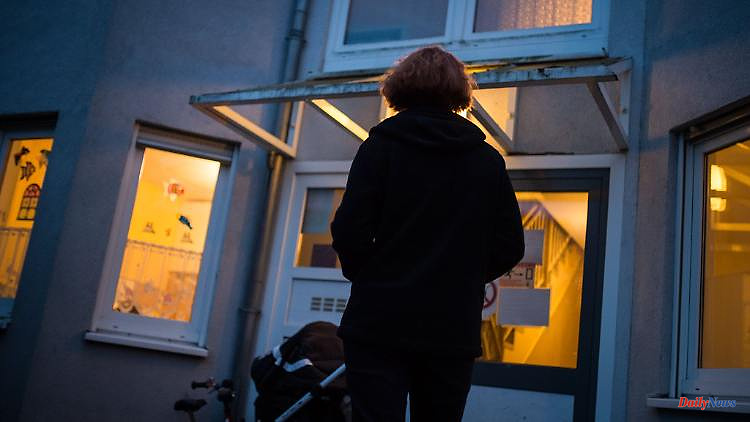If your own four walls no longer offer security, women in Saxony-Anhalt are left with a nationwide network of women's shelters. Those who seek protection there often have children with them.
Halle (dpa/sa) - Last year, 490 women with 580 children found refuge in the women's shelters in Saxony-Anhalt. The number of people seeking protection was slightly higher than in the previous year at 483, but significantly lower than the number of 533 in 2019, as the state administration office in Halle announced when asked. The women stayed in the facilities for an average of 55 days. In 2020, the average length of stay had reached the previous high of 58 days. On average, 60 percent of the places in the women's shelters were occupied last year.
On the one hand, there were corona cases among the employees and residents in the facilities, said Anke Weinreich, state coordinator for domestic violence and stalking. In some cases, there were recording stops. On the other hand, it was about better allowing distances - for example with a view to shared kitchens and bathrooms. Weinreich said of the current situation: "The houses are very full at the moment." These are wave movements that cannot always be explained.
According to the information, there were 117 shelters in Saxony-Anhalt last year - as many as this year. The number of people employed in the women’s shelters was 48. The state administration office was not yet able to provide any information on developments in 2022 because they depend on layoffs, retirement and the difficult search for skilled workers. In 2011 more than 2.1 million euros were available for the women's shelters. With the budget for the current year decided in May, it is a good 2.47 million euros.
State coordinator Weinreich also emphasized that the women's shelters were now receiving funds for interpreters for the first time; 4000 euros per year and facility are planned. Additional funds from some kind of fund could be applied for. According to the State Administration Office, 210 of the 490 women admitted had a migration background.












